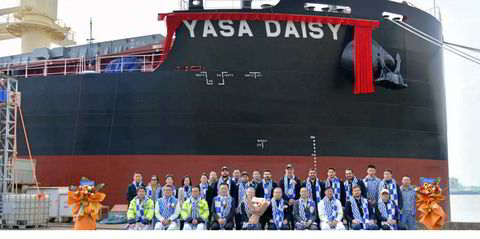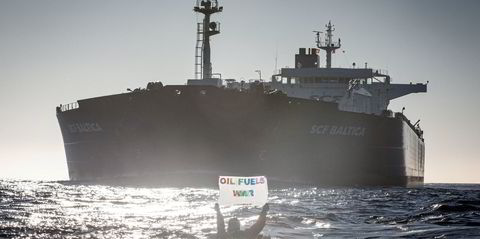A compensation claim against Maran UK over the death of a recycling worker in Bangladesh will not go to trial.
The claim could have set a legal precedent over whether shipowners could be held responsible for death and injury at demolition yards, even after a vessel had been sold through a third party for recycling.
Human rights law firm Leigh Day represented claimant Hamida Begum, the widow of Khalil Mollah, who fell to his death while dismantling the 300,000-dwt tanker Ekta (built 1995) at the Zuma Enterprise Yard at Chattogram in March 2018.
The Ekta, formerly known as Maran Centaurus, was linked to Maran UK, a part of the Angelicoussis Group, before being sold for recycling through a cash buyer.
However, TradeWinds is told Leigh Day will no longer bring the case to trial. The law firm declined to offer further details, and Maran Tankers and Maran UK did not respond to requests for comment.
It is unclear if an agreement has been reached between the parties.
But the outcome is that there will be no legal test of the duty of care that shipowners have to demolition yard workers — or whether their liabilities end once a ship has been sold for recycling.
Safer option?
Last year, the case seemed destined to reach the High Court in London after an appeal court overruled an attempt by Maran UK to have it struck out.
The appeal court's judgment was made partly on the basis that Maran could have taken the option of recycling the ship at a safer green shipyard.
Although a clause was included in the sale contract that the vessel should be demolished at a yard with "good health and safety working practices", the courts said the circumstances of the sale made it likely that it would be demolished in Bangladesh.
This is the second time such a case has failed to make it to the courts.
In 2018, Zodiac Maritime reached a confidential out-of-court settlement over a similar case involving Mohamed Edris, again represented by Leigh Day, who was severely injured while dismantling the 915-teu container ship Eurus London (built 1992).
The question now turns to whether more cases could be brought forward against shipowners. So far, Leigh Day has only brought cases against UK-based companies that can be considered under the jurisdiction of the High Court.
While hundreds of cases of serious injury and fatalities could potentially be brought against shipowners, the number that directly involve British commercial entities is limited.






